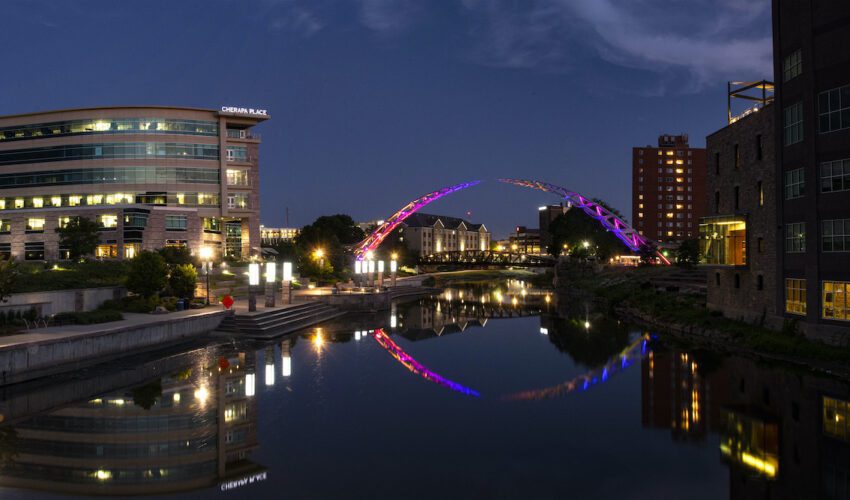Jodi’s Journal: A convenience culture comes with a cost
This column is going to be a little out of character for me.
I’m typically all about innovation in industry — especially in retail, which finds itself in need of it on many fronts.
I also suspect anyone who knows me even remotely well would describe me with many other adjectives before the word “patient” even came close to surfacing.
But I do think that — in the vast majority of cases — families should still have to wait in line to see Santa Claus.
This is no longer necessary, thanks to simonsanta.com, a website run by Simon, parent company of The Empire Mall, which promoted the service in a news release I received a few weeks ago.
“Families can save time and avoid the line by reserving a time with Santa online,” it said.
I don’t fault Simon at all for offering this. It was inspired, I suspect, by other innovators such as Disney, which allow us to fast-track through amusement rides via an electronic reservation method.
Simon, Disney and a slew of others in retail, hospitality and any number of other industries are trying to deliver what customers are showing they want: convenience.
Major retailers are even going so far as to bring items ordered online into your home. Amazon and Walmart started testing a service a few months ago that includes someone putting away your groceries — while you have the option to watch via smartphone, naturally.
“Think about that — someone else does the shopping for you AND puts it all away,” wrote Sloan Eddleston, Walmart’s vice president of e-commerce strategy and business operations, in a blog post.
Well, I did think about it. And about what’s causing us to feel the need for such extreme convenience. And about the sense of excited anticipation I remember feeling as a kid waiting in line to see Santa. Shouldn’t that be part of the whole experience?
It all led me to a therapist.
“Do you feel like people increasingly are just that overwhelmed?” I asked Larry Ling, an outpatient counselor at Avera Behavioral Health.
“Definitely,” he said. “I’ve been talking about it quite a bit lately with the therapists here that there seems to be a heightened sense of tension among the adults we’re seeing, just in general in addition to whatever their issues are.”
But here’s the problem. Trying to make things more convenient can have long-lasting effects.
Take the Santa line, for instance. Yes, it’s a little thing, but it’s a chance for children at a young age to experience delayed gratification. And that’s more important now than ever.
“All the electronics for kids are designed to have instant feedback, so when you see kids have to wait in line for anything, they get impatient. And they’re not used to it,” Ling said. “They want stuff to happen right now. And electronics give them that.”
Long-term, it can help explain why kids are struggling to finish college or work their way up the ladder at work, he continued.
And while it’s more convenient to stay out of the grocery store — especially with the kids — “how are you going to teach social behavior if they’re not in public?” Ling asked. “Not that you have to take your kids everywhere, but the ordering of groceries takes everything out of the picture. You don’t have to go socialize. You have people doing it for you as a convenience. You’re also paying for that convenience.”
OK, I continued, so why is it that people are feeling so overwhelmed?
“The main stress is they need to work, but their work environment is highly stressful and they have managers who are less than sympathetic,” Ling answered. “They get to the point where they dread getting up in the morning and going to work, but they can’t afford not to work, so they’re in a bind.”
So many people tell me about work stress I almost feel like it’s ubiquitous, and yet I also hear all the time from employers touting their flexibility and “work-life balance.” Something doesn’t add up. I think there’s a clear disconnect when it comes to expectations between employer and employee. I think many managers underestimate the time it takes to complete certain tasks. And I think many employees would be amazed how much they could accomplish with more intentional focus and fewer self-imposed distractions at work.
In the meantime, though, my guess is the marketplace will continue to try to offer ways for us to avoid the more mundane tasks in life — like, you know, finding time to go buy food and put it away at home.
The saddest part, though, is that whatever time we may be saving on these tasks doesn’t really seem to translate into “quality time.” It likely translates into more time working, shuttling between activities, or — just admit it — connected to one of our devices.
From a business standpoint, there’s also a very real risk in making things too convenient for the customer. Think about the grocery business lost when the customer never comes in the store and ends up making impulse purchases. In industries such as banking and health care, consider the missed opportunities to build relationships if the client or patient never has to personally interact with you.
“I think businesses will always self-correct,” Ling said. “If they start to see it swinging the other way to dissatisfaction, it could swing back to spending more time with people. I think this is going to be an ongoing discussion in our society for a while.”








